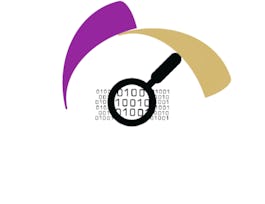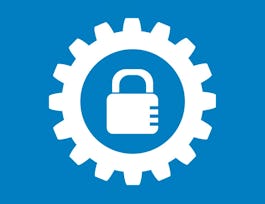This course is designed for professionals and students are seeking a comprehensive understanding of IoT security. Participants will define IoT ecosystem components, identify security challenges, and explore threats and vulnerabilities. They will learn threat modeling techniques, differentiate risk assessment methodologies, and recognize best practices while understanding IoT security standards and controls. The course facilitates the comparison of IoT computing frameworks, evaluation of security implications in architectural approaches, and analysis of secure IoT architectures. It also covers secure communication protocols. Ultimately, participants will gain the expertise to safeguard complex IoT systems, making informed decisions to ensure their security and integrity.



Foundations of Secure IoT Architecture
This course is part of Assessing and Managing Secure IoT Applications and Devices Specialization

Instructor: Dr. Fortem Mbah
Sponsored by IEM UEM Group
Recommended experience
Details to know

Add to your LinkedIn profile
10 assignments
See how employees at top companies are mastering in-demand skills

Build your subject-matter expertise
- Learn new concepts from industry experts
- Gain a foundational understanding of a subject or tool
- Develop job-relevant skills with hands-on projects
- Earn a shareable career certificate


Earn a career certificate
Add this credential to your LinkedIn profile, resume, or CV
Share it on social media and in your performance review

There are 3 modules in this course
Welcome to Foundations of Secure IoT Architecture! In this module, participants will explore the evolving realm of IoT security. The focus will be on understanding the components of an IoT system and identifying common IoT security challenges. Additionally, participants will explore common IoT threats and vulnerabilities in IoT networks. The multifaceted aspects of IoT ecosystems will be broken down, providing insights into their contribution to the ongoing security challenges. The module will uncover the consequences of breaches and vulnerabilities, while also analyzing threats spanning physical elements, network components, and application layers. Real-world scenarios will be studied to underscore the critical importance of robust security measures.
What's included
7 videos8 readings4 assignments2 discussion prompts3 plugins
This module is designed to provide learners with the chance to explore the realm of risk assessment and IoT security standards. They'll engage in understanding threats through the perspective of attackers and identifying vulnerabilities in IoT environments. A systematic approach will be developed to prioritize and manage these risks effectively, leading to the creation of a strong risk mitigation plan. The module also delves into security controls, emphasizing the value of industry standards to enhance the security of IoT ecosystems against emerging threats.
What's included
6 videos4 readings3 assignments2 discussion prompts2 plugins
This module is designed to provide learners with an exploration into various IoT frameworks, including edge, fog, and cloud, shedding light on their individual strengths and weaknesses. The module examines the impact on data flow, processing, and security aspects. Furthermore, it equips learners with insight into the challenges of establishing secure communication channels to protect data integrity, confidentiality, and authenticity across devices, networks, and applications.
What's included
7 videos6 readings3 assignments2 discussion prompts1 plugin
Instructor

Offered by
Why people choose Coursera for their career




Recommended if you're interested in Information Technology

University of Colorado System

Packt

Open new doors with Coursera Plus
Unlimited access to 10,000+ world-class courses, hands-on projects, and job-ready certificate programs - all included in your subscription
Advance your career with an online degree
Earn a degree from world-class universities - 100% online
Join over 3,400 global companies that choose Coursera for Business
Upskill your employees to excel in the digital economy




